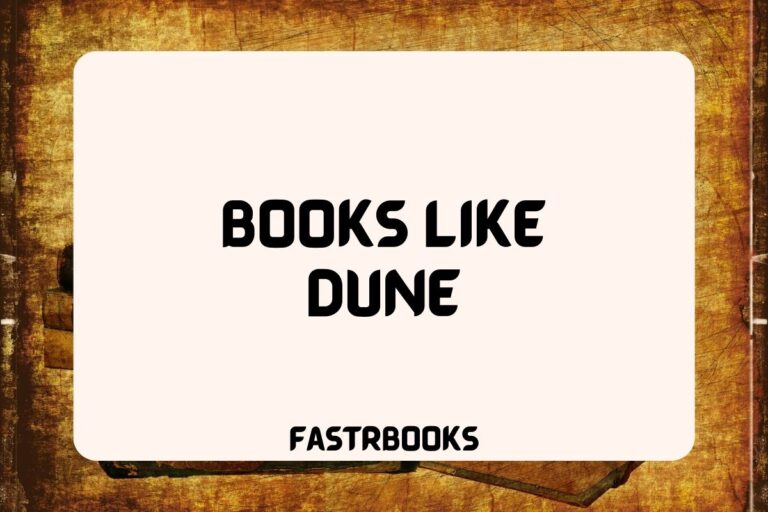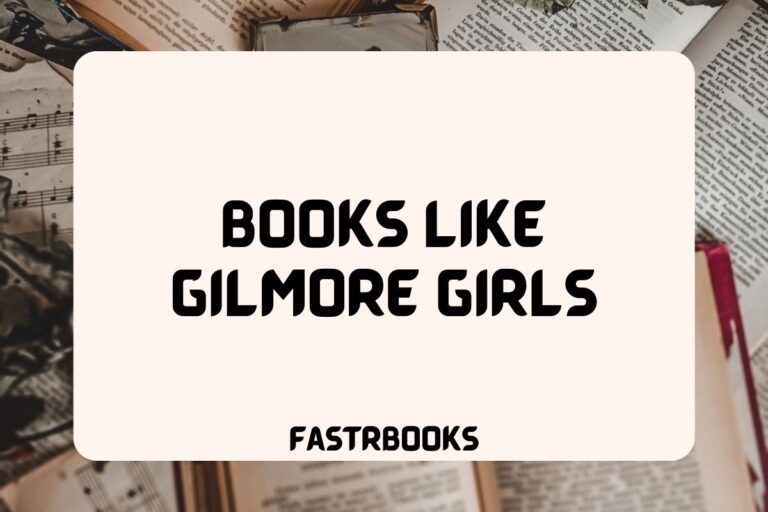10 Books Like The Hate U Give

“The Hate U Give” by Angie Thomas isn’t just a book; it’s a movement. It’s a powerful story that ignites discussions about race, police brutality, and finding your voice in the face of injustice.
If you, like countless others, were captivated by Starr Carter’s journey, you’re probably craving more stories that tackle important social issues and celebrate the complexities of identity.
Well, buckle up, because we’ve got a list of some amazing reads that will keep the conversation going and leave you feeling empowered, inspired, and maybe even a little bit hopeful.
Books Like The Hate U Give
1. Dear Martin by Nic Stone
“Dear Martin” follows Justyce McAllister, a top student and debate champion at his prep school, who finds himself a victim of racial profiling when he tries to help his drunk ex-girlfriend.
This incident leads him to start a journal to Dr. Martin Luther King Jr., hoping to find guidance. As Justyce navigates the challenges of being a Black teen in a predominantly white society, he confronts issues of race, class, and identity, striving to live up to King’s ideals.
Major Similarities:
Like “The Hate U Give,” “Dear Martin” addresses the complexities of growing up Black in America, the impact of racial profiling, and the struggle for social justice.
Both books use a first-person narrative to give a personal and emotional insight into the protagonists’ experiences, blending real-life issues with compelling storytelling. They inspire conversations about race, equality, and the importance of speaking out against injustice.
2. On the Come Up by Angie Thomas
“On the Come Up” is set in the same universe as “The Hate U Give” and centers on Bri, a sixteen-year-old aspiring rapper. Following in the footsteps of her late father, a legendary underground rapper, Bri is determined to make it big in the world of hip-hop.
However, as her family faces financial instability and homelessness, her dreams and reality collide. Bri must navigate the challenges of expressing her true self while battling stereotypes and expectations.
Major Similarities:
Both novels are written by Angie Thomas and delve into themes of identity, racism, and social justice within a community marked by violence and discrimination.
“On the Come Up” explores the power of voice and music as forms of resistance, similar to how “The Hate U Give” uses activism. They share a compelling narrative style that engages readers in a dialogue about societal issues through the eyes of strong, young Black protagonists.
3. All American Boys by Jason Reynolds and Brendan Kiely
“All American Boys” is a dual-narrative story that tackles the issue of police brutality from two perspectives: Rashad, a Black teenager who is a victim of police brutality, and Quinn, a white teen who witnesses the attack.
Rashad’s and Quinn’s lives intertwine as their community divides over the incident. The novel explores themes of racism, justice, and the importance of understanding and activism in the face of prejudice.
Major Similarities:
This book shares with “The Hate U Give” a focus on the consequences of racial profiling and police brutality, emphasizing the importance of speaking out against systemic racism.
Both novels present a realistic portrayal of contemporary social issues, encouraging readers to reflect on their role in society. The alternating perspectives in “All American Boys” enhance the understanding of the complexity of race relations, similar to Angie Thomas’s approach to diverse viewpoints.
4. Piecing Me Together by Renée Watson
“Piecing Me Together” tells the story of Jade, a smart and talented Black girl who feels out of place at her predominantly white private school.
Through her journey, Jade deals with issues of race, class, and gender, as she navigates the expectations placed on her by society and her mentors. The novel explores themes of identity, friendship, and the struggle to find one’s voice in a world that often overlooks those deemed different.
Major Similarities:
Like “The Hate U Give,” “Piecing Me Together” addresses the intersectionality of race, class, and gender, focusing on the personal growth and empowerment of a young Black protagonist.
Both books highlight the importance of community, support, and self-expression in overcoming systemic barriers. They also emphasize the role of education and mentorship in shaping the futures of young people facing societal challenges.
5. Ghost Boys by Jewell Parker Rhodes
“Ghost Boys” is a poignant and powerful novel about Jerome, a twelve-year-old Black boy who is shot and killed by a police officer who mistakes his toy gun for a real threat.
As a ghost, Jerome witnesses the aftermath of his death and meets the ghost of Emmett Till, who helps him understand the historical context of racial violence. The story explores themes of racism, injustice, and the impact of violence on communities and families.
Major Similarities:
Both “Ghost Boys” and “The Hate U Give” confront the issue of police violence against Black individuals, aiming to foster understanding and empathy among readers.
Through their narratives, they address the deep-rooted systemic issues of racism and the need for change. While “The Hate U Give” is rooted in a more realistic setting, “Ghost Boys” uses elements of magical realism to convey its message, yet both powerfully advocate for social justice and equality.
6. Monday’s Not Coming by Tiffany D. Jackson
“Monday’s Not Coming” is a gripping narrative centered around Claudia, whose best friend Monday Charles has disappeared without a trace.
As Claudia delves into the mystery, she faces a disinterested community and a slow-moving investigation, revealing the deeper societal issues that allow a young Black girl to vanish unnoticed. The story navigates through themes of friendship, neglect, and the failures of institutions supposed to protect children.
Major Similarities:
Similar to “The Hate U Give,” this novel deals with themes of systemic neglect and the overlooked struggles of Black communities. Both books provide a critical commentary on society’s failure to protect its most vulnerable members and the importance of raising one’s voice against injustice.
“Monday’s Not Coming” emphasizes the impact of individual and community activism in seeking justice, mirroring the activism seen in “The Hate U Give.”
7. The Poet X by Elizabeth Acevedo
“The Poet X” is a novel-in-verse that follows Xiomara Batista, a young Afro-Latina girl growing up in Harlem.
Struggling with her burgeoning identity, her strict immigrant family’s expectations, and her untapped passion for poetry, Xiomara finds solace and power in her words. Through her poetry, she begins to navigate the complexities of adolescence, faith, and the freedom to choose her own path.
Major Similarities:
Both “The Hate U Give” and “The Poet X” explore the power of voice and self-expression in confronting and coping with societal pressures and personal challenges.
The protagonists of both novels use their unique talents (activism for Starr and poetry for Xiomara) as means of advocacy and resistance against injustice. Themes of family dynamics, cultural identity, and the search for autonomy are central to both stories, offering deep insights into the experiences of young women finding their places in the world.
8. American Street by Ibi Zoboi
“American Street” tells the story of Fabiola Toussaint, a Haitian immigrant who moves to Detroit’s west side, expecting the American Dream but faces its harsh realities instead.
When her mother is detained by immigration, Fabiola navigates her new life with her American cousins, confronting the challenges of assimilation, violence, and the struggle for identity. The novel blends elements of Haitian Vodou culture with a poignant narrative on family, love, and resilience.
Major Similarities:
Like “The Hate U Give,” “American Street” addresses themes of identity, race, and the American experience through the eyes of a young protagonist dealing with systemic injustice.
Both books offer a critique of society’s shortcomings and the impact of those systemic issues on family and community. The incorporation of cultural elements and the emphasis on strong female leads highlight the importance of understanding and preserving one’s heritage amidst adversity.
9. Long Way Down by Jason Reynolds
“Long Way Down” is a novel told in verse, set over the course of sixty seconds—the time it takes for fifteen-year-old Will to decide whether or not he’s going to murder the person who killed his brother.
The story takes place in an elevator, with each floor bringing a new character into Will’s journey, offering pieces of advice, memories, and his brother’s rules about revenge. Through this intense and confined setting, the novel explores themes of violence, grief, and the cycle of retaliation.
Major Similarities:
Both novels delve into the impact of gun violence and the cycle of revenge within Black communities, presenting a poignant critique of societal norms surrounding violence.
“Long Way Down” and “The Hate U Give” challenge their young protagonists to make difficult choices in the face of systemic injustices and personal loss, encouraging readers to question the effectiveness of revenge and the importance of breaking cycles of violence.
10. How It Went Down by Kekla Magoon
“How It Went Down” is a multi-perspective narrative that unfolds the aftermath of the shooting of a Black teenager, Tariq Johnson, by a white man.
Through the eyes of witnesses, friends, family, and the local community, the story reveals conflicting accounts of the incident, highlighting the complexities of racial tensions, truth, and justice in an urban setting.
The novel addresses the impact of Tariq’s death on his community and the struggle for understanding and healing in the wake of violence.
Major Similarities:
Similar to “The Hate U Give,” “How It Went Down” confronts the themes of racial injustice, community response to violence, and the quest for truth in the aftermath of a tragic shooting.
Both books utilize multiple perspectives to explore the nuanced experiences of their characters, emphasizing the importance of empathy and dialogue in understanding complex social issues.
They prompt readers to reflect on the impact of systemic racism and the power of community in seeking justice and change.






